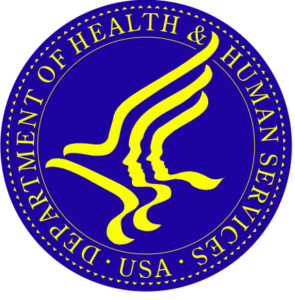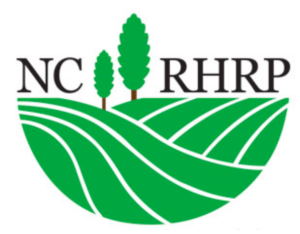- Senator Baldwin Introduces HSHS Act to Protect Communities from Hospital Closures
- What to Know about Smoke, Heat and Health
- Tribal Partnership With UW-Madison Combines Ag Research With Indigenous Food Knowledge
- The Rewards of Working as Rural Docs
- Request for Information (RFI): Evolving the Network of the National Library of Medicine
- Dental Therapists, Who Can Fill Cavities and Check Teeth, Get the OK in More States
- Colorectal Cancer Is Rising among Younger Adults. Some States Want to Boost Awareness.
- Rural Hospitals Built During Baby Boom Now Face Baby Bust
- Food Stamps Go Further in Rural Areas — Until You Add Transportation Costs
- CMS Announces Resources and Flexibilities to Assist with the Public Health Emergency in the State of Texas
- CMS Proposes New Payments for Digital Health Under CY2025 PFS Draft Rule
- Improving Public Health by Strengthening Community Infrastructure
- Biden Harris Administration Proposes Policies to Reduce Maternal Mortality, Advance Health Equity, and Support Underserved Communities
- Nearly Half of U.S. Counties Don't Have a Single Cardiologist
- Randolph County, Ill. Turns Unused Part of Nursing Home Into State-Of-The-Art Behavioral Health Center
New Medicare Behavioral Health Providers: Incorporating MHCs and MFTs Into Your RHC

– Thursday, May 9 at 1:00 pm Eastern. The National Association of Rural Health Clinics (NARHC) will host the free, FORHP-supported webinar with information on incorporating Marriage and Family Therapists (MFTs) and Mental Health Counselors (MHCs) into Rural Health Clinics (RHCs). Medicare coverage of Marriage and Family Therapists and Mental Health Counselors in RHCs began January 1, 2024. This webinar will feature representatives from the National Board for Certified Counselors and the American Association for Marriage and Family Therapy, who will provide information to ensure RHCs are equipped to consider expanding behavioral health services. Additional time for Q&A will be provided. Advanced registration is required.
Understanding HRSA Modifications to the Definition of Rural for FORHP Grants
 – Comment by May 28. On April 26th, the Federal Office of Rural Health Policy (FORHP) announced a proposed modification to the definition of ‘rural’ used to designate eligible areas for rural health grants. Because access to needed health care is likely to be reduced when roads are most difficult to traverse, FORHP proposes to modify the definition of rural areas by integrating the new Road Ruggedness Scale (RRS) released in 2023 by the Economic Research Service (ERS) of the U.S. Department of Agriculture. The proposed modifications are based on a data-driven methodology to identify areas with difficult mountainous terrain. All areas included in the current definition of rural would remain included.
– Comment by May 28. On April 26th, the Federal Office of Rural Health Policy (FORHP) announced a proposed modification to the definition of ‘rural’ used to designate eligible areas for rural health grants. Because access to needed health care is likely to be reduced when roads are most difficult to traverse, FORHP proposes to modify the definition of rural areas by integrating the new Road Ruggedness Scale (RRS) released in 2023 by the Economic Research Service (ERS) of the U.S. Department of Agriculture. The proposed modifications are based on a data-driven methodology to identify areas with difficult mountainous terrain. All areas included in the current definition of rural would remain included.
HHS Releases Nondiscrimination in Health Program and Activities Final Rule

Effective May 6. The U.S. Department of Health and Human Services (HHS) Office of Civil Rights issued a final rule under Section 1557 of the Affordable Care Act advancing protections against discrimination in health care. At a minimum, the rule will restore protections against discrimination on the basis of race, color, national origin, sex, age, and disability. It will also reduce language access barriers, expand physical and digital accessibility, and address bias in health technology. With the restoration of the rule, HHS aims to increase meaningful access to health care for communities across the United States.
Navigating the Application Guide for HRSA Rural Healthcare Provider Transition Project

-Apply by August 15. Five small rural hospitals and certified Rural Health Clinics will be selected to receive one year of focused, virtual technical assistance designed to strengthen their organization’s understanding of the key elements of value-based care. Project focus areas include quality, efficiency, patient experience, and safety. Details on the application process can be found in the 2024-2025 Application Interview and Process Guide. Selected applicants will be notified in September, and project activities begin in October 2024.
Using the Updated Financial Distress Index to Describe Relative Risk of Hospital Financial Distress

Researchers at the North Carolina Rural Health Research and Policy Analysis used a recent revision of the Financial Distress Index (FDI) model to describe the relative risk of experiencing financial distress for rural hospitals and selected urban hospitals. Among the findings: over 60 percent of hospitals at highest relative risk of financial distress are in seven states: Texas, Oklahoma, Tennessee, Alabama, Kansas, Mississippi, and Georgia.
Research Demonstrates Non-Urgent Use of Emergency Departments by Rural and Urban Adults
 Among findings from the Maine Rural Health Research Center: rural adults aged 18-64 are more likely than their urban counterparts to visit the emergency department in a given year; socio-demographics associated with higher rates of non-urgent ED use by rural residents include younger age, fair or poor mental and physical health, low income, public insurance coverage, and lower access to primary care.
Among findings from the Maine Rural Health Research Center: rural adults aged 18-64 are more likely than their urban counterparts to visit the emergency department in a given year; socio-demographics associated with higher rates of non-urgent ED use by rural residents include younger age, fair or poor mental and physical health, low income, public insurance coverage, and lower access to primary care.
